
We kindly inform you that, as long as the subject affiliation of our 300.000+ articles is in progress, you might get unsufficient or no results on your third level or second level search. In this case, please broaden your search criteria.

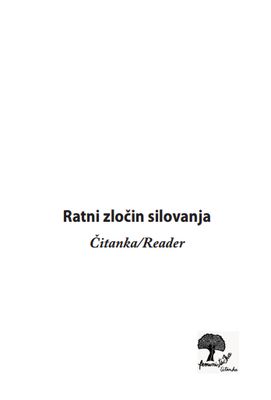
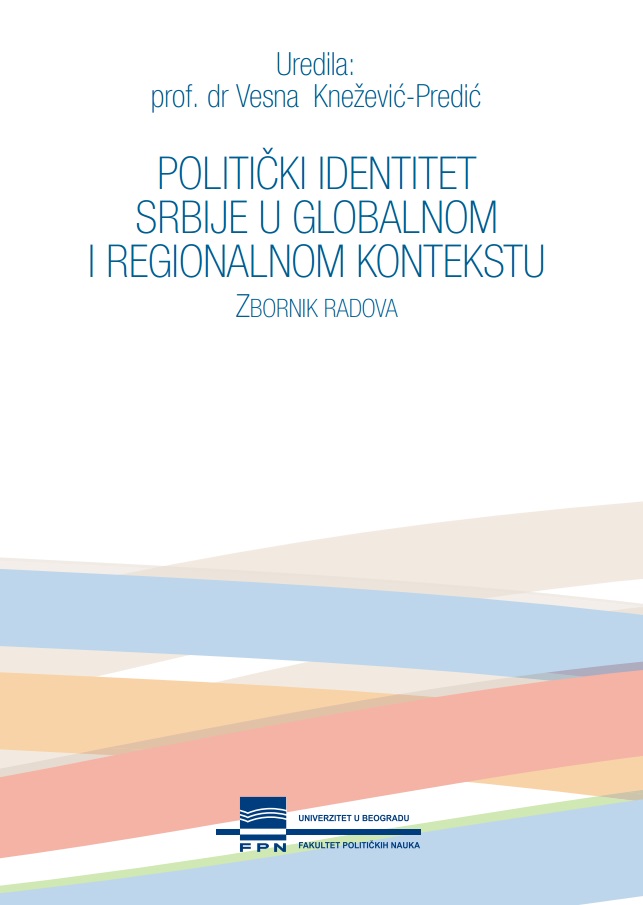
Treatment of the refugees and asylum seekers can become be a challenge for any state, particularly for fragile states with relatively weak economies and insufficient institutional capacities. The war in Syria caused a significant flow of refugees and asylum seekers from that region, which stirred the foundations of humanity across Europe, indicating that EU could become fortress like. There are alarming trends in border controls and prison-like treatment of the illegal migrants. The detention centers offer poor living conditions and there is wide spread malpractice of expulsion of asylum seekers without proper asylum procedures or in disrespect of the non-refoulmant principle of the public international law. Republic of Serbia is in a complex situation that requiring careful monitoring of external and internal migration flows. There is already a significant number of refugees and Internally displaced peoples (IDPs) as a legacy from the conflicts related to the dissolution of Yugoslavia. The general socio-economic situation is fragile and not helpful for the formulation of a clear and coherent migration policy. The management of migrations in Serbia is also an issue within the process of the EU accession, under Chapter 24 (Justice, Freedom and Security). The key human rights issues in the context of migrations are the reception conditions for the asylum seekers, in particular, those belonging to the vulnerable groups, and collective rejections without due process.
More...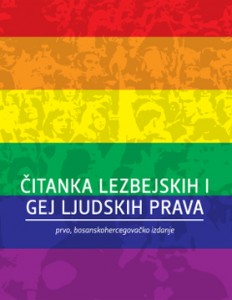
Sarajevski otvoreni centar vam predstavlja prvu obimnu publikaciju o LGBT ljudskim pravima u Bosni i Hercegovini. U prošlosti su već objavljene različite publikacije u na ovu temu, međutim, mi smo se odlučili/e da proširimo ovu tematiku i iz tog razloga nastaje ova Čitanka. Zbog načina pristupa temama i obrade istih Čitanka je značajna kako za samu LGBT zajednicu u Bosni i Hercegovini, njeno jačanje i povećanje vidljivosti, tako i za različite društvene institucije, organizacije i pojedince/ke zainteresovane za ovu problematiku. Publikacija promoviše pozitivan stav i podizanje svijesti o značaju zaštite LGBT ljudskih prava.
More...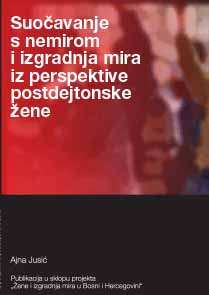
In the publication “Dealing with the Restlessness and Peacebuilding from the Perspective of a Post-Dayton Woman” you will have the opportunity to read the stories of women who are true heroines, who changed themselves, their local community, the environment in which they live. Some of them are long-term activists in the fight for women’s rights, while others are activists without even being aware of it. You may have had the opportunity to see them, listen to them, meet them, but you were not even aware of what their stories really are, so this is an ideal opportunity for their voices to be heard, for stories to be told and for us to they will be the guiding stars in further work and life. Since its establishment, the CURE Foundation has been involved in promoting a feminist approach to justice through the Women’s Court, and today we are active members of the regional Women’s Court. It is important for us that women’s voices are heard and echoed and that their stories are told.
More...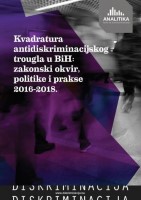
Ovaj izvještaj predstavlja nastavak kontinuiranih aktivnosti Analitike – Centra za društvena istraživanja na monitoringu i analizi primjene Zakona o zabrani diskriminacije (u daljnjem tekstu: ZZD), sa akcentom na funkcioniranje ključnih mehanizama zaštite i djelovanje ključnih institucija u sistemu borbe protiv diskriminacije. Prema ZZD-u, arhitekturu antidiskriminacijskog djelovanja u Bosni i Hercegovini (BiH) čine tri institucionalna aktera: sudovi, Institucija ombudsmena za ljudska prava BiH, te Ministarstvo za ljudska prava i izbjeglice BiH. Sudska zaštita od diskriminacije predviđena je prvenstveno kroz specifične antidiskriminacijske parnice, čija je osnovna intencija da u određenoj mjeri olakšaju položaj tužitelja u parničnom postupku. Institucija ombudsmena za ljudska prava BiH djeluje kao centralna institucija za zaštitu od diskriminacije, čije su nadležnosti u ovoj oblasti brojne i kompleksne. U skladu sa ZZD-om, Institucija ombudsmena, pored ostalog, rješava pojedinačne i grupne žalbe u vezi sa diskriminacijom, prikuplja i analizira statističke podatke o slučajevima diskriminacije, informira javnost o ovim pojavama, poduzima vlastita istraživanja u ovoj oblasti, daje mišljenja i preporuke organima vlasti, podnosi godišnje i vanredne izvještaje o pojavama diskriminacije parlamentima BiH, entiteta i Brčko distrikta, predlaže zakone i druge akte nadležnim institucijama u BiH, prati relevantno zakonodavstvo i savjetuje organe zakonodavne i izvršne vlasti, te provodi promotivne i aktivnosti podizanja svijesti u kontekstu borbe protiv diskriminacije. Na kraju, nadležnost Ministarstva za ljudska prava i izbjeglice BiH u ovoj oblasti odnosi se na prikupljanje podataka i podnošenje izvještaja Parlamentarnoj skupštini BiH o pojavama diskriminacije, uspostavljanje i vođenje centralne baze podataka za djela diskriminacije, te praćenje provođenja ZZD-a. Prema već utvrđenom metodološkom pristupu, ovaj izvještaj nastoji odgovoriti na pitanje u kojoj mjeri tri navedene institucije ispunjavaju svoje zakonom propisane nadležnosti u ovoj oblasti te, konkretnije govoreći, da li je od našeg posljednjeg izvještaja o ovoj problematici – dakle, u posljednje dvije godine – postignut napredak u njihovom radu. U prethodnom izvještaju konstatirani su brojni problemi u sva tri segmenta antidiskriminacijskog djelovanja, koji ozbiljno dovode u pitanje efektivnost zaštite od diskriminacije u BiH, pa i funkcioniranje ukupnog sistema. Kako je utvrđeno u prethodnom izvještaju, premda pokazuju trend blagog porasta, antidiskriminacijske parnice se još uvijek prečesto vode i okončavaju na način da se ne uvažavaju specifične procesne odredbe ZZD-a. Institucija ombudsmena za ljudska prava BiH suočava se sa ozbiljnim kadrovskim i budžetskim ograničenjima, koja, u kombinaciji sa brojnim i kompleksnim nadležnostima u ovoj oblasti, gotovo nužno vode do iznevjerenih očekivanja u ispunjavanju zahtjevne uloge centralne institucije za zaštitu od diskriminacije. Ministarstvo za ljudska prava i izbjeglice BiH također predugo kasni sa ispunjavanjem vlastitih obaveza iz ZZD-a, pa je procijenjeno da će sistem prikupljanja podataka i izvještavanje o pojavama diskriminacije biti operativan tek krajem 2018. i početkom 2019. godine. Stoga se, dvije godine kasnije, postavlja pitanje kakvi su trendovi kada je riječ o djelovanju navedena tri stuba antidiskriminacijske zaštite u BiH, te u kojoj su mjeri problemi identificirani u prethodnom ciklusu izvještavanja prevaziđeni. Odgovor na ovo opće pitanje koje se odnosi na sva tri institucionalna aktera nastojali smo dati analizom spomenutih aktivnosti iz njihove nadležnosti, s fokusom na ključne rezultate njihovog rada, ili nedostatak istih, po tim aktivnostima. Analizirani su dostupni dokumenti i drugi primarni izvori, a konsultirani su i relevantni izvještaji, članci i drugi sekundarni izvori iz ove oblasti. Po prirodi stvari, nalazi prethodnog izvještaja su korišteni kao referentni okvir. Na kraju, obavljeni su i intervjui s predstavnicima nekih od najvažnijih aktera u domenu antidiskriminacijskog djelovanja u BiH, uključujući i institucije o kojima je prvenstveno riječ, kako bi se dobila što potpunija slika. Prvo poglavlje izvještaja bavi se sudskom zaštitom od diskriminacije. Dok je fokus prethodnog izvještaja u tom dijelu bio stavljen na tada netom usvojene izmjene i dopune ZZD-a, u ovom ciklusu analiza je usmjerena prvenstveno na sudsku praksu – i to kako na kvantitativne pokazatelje tako i na kvalitativnu dimenziju antidiskriminacijskih parnica koje su odabrane za podrobniju analizu. Posebna pažnja posvećena je dokazivanju diskriminacije u praksi u svjetlu brojnih problema i nekonzistentnosti u razumijevanju i interpretaciji specifičnosti dokazivanja u antidiskriminacijskim parnicama, pa i potpunog ignoriranja ovih odredbi od strane sudova, a koji su uočeni u prethodnom izvještaju. U drugom poglavlju tematizira se rad Institucije ombudsmena za ljudska prava BiH. Ono što je svakako obilježilo protekli period jesu zakonodavne aktivnosti na izmjeni i dopuni zakonskog okvira koji regulira rad Institucije, pa je toj problematici posvećena dužna pažnja. Drugo bitno pitanje kojim se bavi ovo poglavlje jeste ostvarivanje balansa između različitih nadležnosti i obaveza Institucije ombudsmena, s posebnim fokusom na ulogu i značaj aktivnosti usmjerenih na promociju jednakosti i zaštite od diskriminacije u djelovanju Institucije. Budući da najbolje institucije ombudsmena za ljudska prava u pravilu dobro kombiniraju rad na individualnim žalbama, sa jedne, te sistemsko djelovanje, sa druge strane, ovo poglavlje nastoji utvrditi da li se i u kojoj mjeri Institucija pomjerila od gotovo isključivo reaktivnog rada na individualnim žalbama karakterističnog za prethodni period. Treće poglavlje posvećeno je analizi progresa Ministarstva za ljudska prava i izbjeglice BiH u uspostavljanju sistema prikupljanja podataka i izvještavanja o pojavama diskriminacije u BiH. Polazeći od pretpostavke da je ideal u ovom segmentu kreiranje svojevrsne “baze znanja” o diskriminaciji, ovo poglavlje nastoji utvrditi da li se Ministarstvo u proteklom periodu barem u određenoj mjeri približilo tom idealu. Pored toga, ponuđen je i kratak osvrt na aktivnosti Ministarstva na uspostavljanju strateškog okvira za djelovanje na suzbijanju i prevenciji diskriminacije u BiH. Izvještaj zaključuju preporuke upućene relevantnim akterima u sistemu zaštite od diskriminacije, sa ciljem njegovog unapređenja, naročito iz perspektive njegovog funkcioniranja u praksi. Činjenica da se mnoge preporuke u našim izvještajima u ovoj oblasti ponavljaju govori o tome da je potrebna kontinuirana aktivnost i kontinuirani pritisak širokog kruga aktera – od ekspertske i akademske zajednice, preko nevladinog sektora, do organizacija koje okupljaju marginalizirane grupe – kako bi se postigao stvarni napredak u pogledu efektivnosti sistema za zaštitu od diskriminacije u BiH. Monitoring i analiza našeg istraživačkog tima upravo je usmjerena ka tom cilju i slijedit će istu ideju i u godinama koje dolaze.
More...
The judgment of the European Court of Human Rights on the application by Dervo Sejdić and Jakob Finci, issued on 22 December 2009, has been attracting wide media coverage and provoking academic and expert debates in Bosnia and Herzegovina. Yet the complexity of its execution seems not to have been adequately recognised in the rather intense debate that it triggered. This debate has been dominated by simplified interpretations that view the judgment either as a prelude to a gradual abandonment of ethnocracy and to the affirmation of citizens as individuals in the political system, or as an act opening up room for something akin to a pluralisation of ethnocracy simply by introducing the category of ‘Others’ into the tripartite structure of Bosnia and Herzegovina, a state of constituent peoples. However, our research operates on the assumption that the possible approaches to the execution of the judgment, based on international and comparative law, are anything but simple. The main intention of this research project is to offer decision-makers, journalists and public officials, as well as the academic community and the wider public, a systematic overview of the conceptual premises, relevant international standards, comparative experiences (especially those from other divided societies) and the past political practice in Bosnia with regard to the political participation of both the constituent peoples and ‘Others’. This overview is necessary in order to identify potential directions that reform of the Bosnian Constitution and the amendments to relevant laws (above all, the Bosnian Election Law) could take in order to ensure the execution of the Sejdić-Finci judgment in ways that would not upset the system of power-sharing established between the three constituent peoples, while still ensuring the political participation of ‘Others’ on a non-discriminatory basis. Our analysis, conceived and implemented as described, has led us to make a number of recommendations that, with due regard to the particularities of the Bosnian context, suggest mechanisms that could potentially be used to execute the judgment in the case of Sejdić and Finci v. Bosnia and Herzegovina. As regards the actual substance of the constitutional reform that could be undertaken in light of the Sejdić-Finci case, the findings of our research are the following: - Bosnia and Herzegovina is not the only state exhibiting the conflict between specific consociational mechanisms and the imperative of ensuring equality and the full enjoyment of human rights in political and public life. For example, Italy has an almost equally problematic system of political participation in the province of South Tyrol, based on the principle of mandatory political ‘aggregation’ of individuals into dominant groups. - In other countries, the mechanisms for representation of ethno-cultural identities have mostly developed in the context of minorities, that is as an exception from the liberal-civic principle of the neutrality of the state and representation of citizens as individuals. Where elements of ethnic federalism exist, political representation at the state level is for the most part ensured based on the territorial principle (i.e. on the principle of representation through federal units), as is the case in Canada, for instance. Also, in contexts where identity as such plays a significant role in political life (e.g. in Belgium), the politically relevant identity is determined based on membership to linguistic groups. Such groups are, by definition, much more open and inclusive than ethno-cultural groups since they can encompass different identities, including ethno-cultural ones. - In view of the above, comparative experiences in the domain of political participation and identity representation certainly have some pertinence and importance when considering possible models for the execution of the judgment, but constitutional specificities of Bosnia and Herzegovina have to be taken into account. - Almost all of the proposals identified for the execution of the part of the judgment concerning the Bosnian Presidency, including the views of the Venice Commission, are not without flaws: Those who propose indirect election of members of the Presidency by the House of Representatives of the Parliamentary Assembly of Bosnia and Herzegovina disregard the possibility of additional political manipulation and unprincipled bargaining by political elites, as well as the fact that not one representative of the ‘Others’ has to date been elected to this legislative body; proposals aimed at increasing the number of members of the Presidency of Bosnia and Herzegovina to four or five, as a rule, do not offer mechanisms to prevent majorisation and manipulation of identities in this context; those who advocate the creation of two electoral units in the Federation of Bosnia and Herzegovina, as a rule, do not take into consideration the additional polarising effect that this option might have on the country’s political life. - As for the House of Peoples of the Parliamentary Assembly of Bosnia and Herzegovina, proposals have mostly focused on mechanisms to elect delegates from the ranks of ‘Others’ to this legislative body. They have for the most part disregarded the question of the House of Peoples’ existing powers, which are, also according to the Sejdić-Finci judgment, one of the key considerations in establishing the discrimination of ‘Others’. - Most proposals for the execution of the Sejdić-Finci judgment that have come before the public do not adequately address this complex problem. Moreover, the solutions offered have rarely been accompanied by appropriate elaboration or argumentation. In particular, there has been a chronic lack of new, innovative solutions that could meet the two-fold demand of representation for ethno-cultural groups and respect for the principle of non-discrimination. - Political actors in BiH have not devoted the appropriate degree of attention to the execution of the judgment in the case of Sejdić and Finci v. Bosnia and Herzegovina. One proof of this inadequacy is the work of the Working Group set up by the Council of Ministers of BiH with the aim of executing the judgment: since its establishment in March 2010, it has yielded no results whatsoever. In addition, neither do the available platforms of political parties, even when they do address the issue, reflect or recognise its complexity, or offer appropriate elaboration and argumentation of their positions. Our interviews with some of the key actors in this process have for the most part also confirmed our assumption that there has been a lack of understanding of this complex issue and insufficient knowledge of the options available to decision-makers. - The media discourse on the judgment itself and its implications has been very limited and unvaried, almost entirely focusing on possible sanctions and the general consequences for Bosnia and Herzegovina for failure to execute the judgment. There has hardly been any media coverage – at least in print media – focusing on the substance of the judgment or the consistent promotion of equality in the enjoyment of political rights by all citizens of Bosnia. Combining descriptive, analytical, comparative and prescriptive elements, the present study concludes with four specific recommendations: – It is certainly necessary for experts in constitutional and international law, as well as experts in comparative political and electoral systems, to become more actively engaged in the public discourse on the execution of the Sejdić-Finci judgment. With a view to this, and as a modest contribution to the project and to increasing the number of available constitutional options, we have formulated a proposal for a mechanism to elect the Presidency of BiH based on the principle of the so-called geometric mean. This, in our view, adequately balances out the demands of identity politics and the principle of non-discrimination. In addition, the proposal encourages cross-entity and cross-ethnic cooperation, ensuring the introduction of a more moderate discourse in political campaigns and political life in general. – When it comes to the House of Peoples of the Parliamentary Assembly of Bosnia and Herzegovina, one should not look for relevant comparative experiences beyond Bosnia and Herzegovina itself: the House of Peoples of the Parliament of the Federation of Bosnia and Herzegovina and the Council of Peoples of the Republika Srpska are, in principle, models that can also be applied at the level of Bosnia and Herzegovina. The underlying principle is the following: if the Bosnian authorities wish to continue with the practice of exclusivity in determining the structure of this body and keep its current status as a house of the constituent peoples, its powers need to be significantly reduced, that is, reduced to the level of the protection of vital national interests. In other words, in this case the House of Peoples of the Parliamentary Assembly of Bosnia and Herzegovina should be equivalent to the Council of Peoples of the Republika Srpska. Conversely, if its current powers are to be kept, the House of Peoples must also be open to delegates not only from the ranks of minorities, but also to all other persons belonging to the constitutional category of ‘Others’. In other words, in this case the House of Peoples of the Parliamentary Assembly of Bosnia and Herzegovina should replicate the model of the House of Peoples of the Federation of Bosnia and Herzegovina. – Intra-party ethno-cultural pluralism is a necessary condition for ensuring multiethnic governance at all levels. This problem is best illustrated by the utterly disregarded fact that, as we have noted, neither the House of Peoples nor the House of Representatives of the Parliamentary Assembly of Bosnia and Herzegovina has ever had a member drawn from the ranks of ‘Others’ although the Constitution and the Election Law of Bosnia and Herzegovina do not contain any formal obstacles to such a genuinely pluralistic composition of the House of Representatives. It is, therefore, necessary to carefully consider the legal and institutional mechanisms for ensuring intra-party pluralism in this domain. – In view of all the problems, inconsistencies, inequalities and paradoxes inherent in the principle and practice of representing the constituent peoples and ‘Others’ as separate identities, which are unequivocally demonstrated in this report, Bosnia and Herzegovina needs, at least in the long term, to move from an ethnic federation to a territorial one that would introduce the principle of representation based on territory rather than based on ethno-cultural identities. However, reforms that would take the country in that direction are currently hampered by the prevailing approach and practice, whereby a territory is conceived of as a space of ethno-cultural domination and discrimination of all minority identities rather than that of openness, inclusiveness and equality, as is the case with most territorial federations, especially in Europe.
More...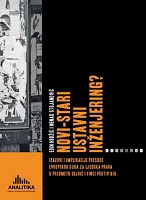
Presuda Evropskog suda za ljudska prava, po predstavci Derve Sejdića i Jakoba Fincija, donesena 22. decembra 2009. godine, već duže vrijeme puni novinske stupce i povod je za akademske i stručne rasprave u BiH. Pa ipak, čini se da kompleksnost njenog izvršenja nije adekvatno prepoznata u dosta intenzivnoj raspravi koja je uslijedila nakon objavljivanja presude. Javnom sferom dominiraju jednostavne formule: presuda se vidi ili kao uvod u potpuno napuštanje etnokratije i afirmaciju građanina pojedinca u političkom sistemu ili kao akt kojim se otvara prostor za svojevrsno pluraliziranje etnokratije jednostavnim uvođenjem kategorije „ostalih" u tripartitnu strukturu države konstitutivnih naroda. No, ovo istraživanje zasnovano je na pretpostavci da moguće, na međunarodnom i komparativnom pravu utemeljene formule izvršenja spomenute presude Evropskog suda za ljudska prava nisu jednostavne. Temeljna namjera ovog istraživanja jest da se donosiocima odluka, novinarima i javnim djelatnicima, te akademskoj i široj javnosti ponudi sistematičan pregled konceptualnih postavki, relevantnih međunarodnih standarda, komparativnih iskustava (naročito onih koja se odnose na druga podijeljena društva) i dosadašnje političke prakse u BiH u oblasti političke participacije i konstitutivnih naroda i „ostalih". Takav je pregled nužan kako bi se identificirali mogući pravci reforme Ustava BiH i izmjene relevantnih zakona (prije svega, Izbornog zakona BiH), koji bi mogli osigurati izvršenje presude u predmetu Sejdić i Finci, na način da se ne narušava uspostavljeni balans političke moći (power- sharing) između konstitutivnih naroda, ali da se osigura politička participacija „ostalih" na nediskriminatorskim osnovama. Iz tako koncipirane i provedene analize proizašle su i određene preporuke vezane za specifični kontekst BiH i moguće mehanizme izvršenja presude u predmetu Sejdić i Finci protiv BiH. Kada je riječ o samoj suštini ustavne reforme u kontekstu predmeta Sejdić i Finci, nalazi istraživanja su sljedeći: BiH nije jedinstven slučaj kada je riječ o konfliktu specifičnih konsocijacijskih mehanizama sa imperativom osiguravanja jednakosti i punog uživanja ljudskih prava u političkom i javnom životu. Južni Tirol (Italija), npr., ima gotovo jednako problematičan sistem političke participacije, koji je baziran na principu političke „agregacije" pojedinaca dominantnim grupama u toj italijanskoj provinciji. Mehanizmi predstavljanja etno-kulturnih identiteta u drugim zemljama uglavnom su razvijeni u kontekstu manjina, odnosno kao izuzetak od liberalno-građanskog principa neutralnosti države i predstavljanja građana kao pojedinaca. Tamo gdje postoje elementi etničkog federalizma, političko predstavljanje na nivou države uglavnom je osigurano na teritorijalnom principu (tj. na principu predstavljanja federalnih jedinica) - kao što je, npr., slučaj u Kanadi. Također, u kontekstima gdje identitet kao takav igra značajniju ulogu u političkom životu (kao, npr., u Belgiji), politički relevantni identitet određuje se na principu jezičkih grupa. Tako koncipirane grupe su, po definiciji, mnogo otvorenije i inkluzivnije od onih etno-kulturnih, budući da mogu obuhvatati različite identitete, uključujući i one etno-kulturne. U skladu s navedenim, komparativna iskustva u domenu političke participacije i predstavljanja identiteta svakako imaju određeni domet i značaj kada promišljamo moguće modele izvršenja presude, ali se u obzir moraju uzeti ustavnopravne specifičnosti BiH. Gotovo svi identificirani prijedlozi izvršenja presude koji se tiču Predsjedništva BiH, uključujući i stavove Venecijanske komisije, imaju određene nedostatke: oni koji predlažu indirektni izbor članova Predsjedništva među zastupnicima u Predstavničkom domu Parlamentarne skupštine BiH zanemaruju mogućnost dodatne političke manipulacije i neprincipijelnog trgovanja političkih elita, te činjenicu da do sada u ovo tijelo zakonodavne vlasti u BiH nikada nije izabran niti jedan zastupnik iz reda „ostalih"; prijedlozi koji predviđaju povećanje broja članova Predsjedništva na četiri ili pet u pravilu ne nude mehanizme koje bi onemogućili majorizaciju i manipulaciju identitetima u ovom kontekstu; oni koji se zalažu za formiranje dvije izborne jedinice u FBiH u pravilu ne razmatraju dodatni polarizirajući efekat koji bi ta opcija mogla imati u političkom životu BiH. Kada je riječ o Domu naroda Parlamentarne skupštine BiH, prijedlozi su se uglavnom fokusirali na mehanizme izbora delegata iz reda „ostalih" u ovo tijelo zakonodavne vlasti u BiH, uglavnom zanemarujući pitanje postojećih nadležnosti Doma naroda, što je, i prema presudi u predmetu Sejdić i Finci, jedan od ključnih faktora utvrđivanja diskriminacije „ostalih". Prijedlozi za izvršenje presude u predmetu Sejdić i Finci koji su se mogli čuti u javnosti uglavnom nisu na odgovarajući način tretirali ovu kompleksnu problematiku. Rješenja koja su ponuđena rijetko su bila praćena odgovarajućom elaboracijom i argumenta¬cijom. Ta konstatacija naročito se odnosi na hronični nedostatak novih, inovativnih rješenja, koja bi mogla odgovoriti na dvostruki zahtjev predstavljanja etno-kulturnih grupa i uvažavanja principa nediskriminacije. - Politički akteri u BiH nisu posvetili odgovarajuću pažnju izvršenju presude u predmetu Sejdić i Finci protiv BiH. Dokaz tome je rad i djelovanje Radne grupe Vijeća ministara BiH za provođenje presude u predmetu Sejdić i Finci protiv BiH, koja od formiranja u martu 2010. do danas nije dala nikakve rezultate. Pored toga, ni dostupne platforme političkih partija, čak i kada tematiziraju ovo pitanje, ne odražavaju niti uvažavaju njegovu kompleksnost, niti nude odgovarajuću argumentaciju. Naši razgovori sa nekim od ključnih aktera u ovom procesu također su uglavnom potvrdili tezu o nerazumijevanju ove kompleksne problematike i nedovoljnom znanju o opcijama koje donosiocima odluka stoje na raspolaganju. - Medijski diskurs o samoj presudi i njenim implikacijama bio je veoma siromašan i jednoličan, te gotovo u cijelosti fokusiran na eventualne sankcije i opće posljedice neprovođenja presude po BiH. Medijskih sadržaja fokusiranih na suštinu presude Evropskog suda za ljudska prava i konzistentno promoviranje jednakosti u uživanju političkih prava svih građana BiH, barem kada je o štampanim medijima riječ, gotovo da i nije bilo. Kombinirajući deskriptivne, analitičke, komparativne i preskriptivne elemente, studija završava sa četiri konkretne preporuke: - U javni diskurs o izvršenju presude u predmetu Sejdić i Finci svakako je nužno aktivnije uključiti eksperte iz oblasti ustavnog i međunarodnog prava, te uporednih političkih i izbornih sistema. S tim ciljem, a kao skromni doprinos tom projektu i generalnom povećanju broja raspoloživih ustavnih opcija, formulirali smo prijedlog mehanizma izbora za Predsjedništvo na principu tzv. geometrijske sredine, koji, prema našem mišljenju, na odgovarajući način balansira zahtjeve politike identiteta sa principima nediskriminacije. Pored toga, taj prijedlog ohrabruje saradnju preko entitetskih i etničkih linija i osigurava uvođenje umjerenijeg diskursa u predizborne kampanje i politički život općenito. Kada je riječ o Domu naroda Parlamentarne skupštine BiH, relevantna komparativna iskustva ne treba tražiti izvan BiH: Dom naroda Parlamenta Federacije BiH i Vijeće naroda Republike Srpske, općenito govoreći, modeli su koji su primjenjivi i na nivou BiH. Princip je sljedeći: ako bosanskohercegovačke vlasti žele nastaviti s praksom ekskluzivizma u utvrđivanju sastava ove instance vlasti u BiH i zadržati njegov sadašnji status doma konstitutivnih naroda, njegova ovlaštenja trebaju biti bitno smanjena, odnosno reducirana na nivo zaštite vitalnog nacionalnog interesa. Drugim riječima, u tom bi slučaju Dom naroda Parlamentarne skupštne BiH trebao bit ekvivalent Vijeća naroda Republike Srpske. Ako se, pak, žele zadržat njegove sadašnje nadležnost, Dom naroda mora bit otvoren i za delegate ne samo iz reda manjina, već i za sve druge osobe koje pripadaju ustavnoj kategoriji „ostalih". Drugim riječima, u tom slučaju Dom naroda Parlamentarne skupštne BiH treba replicirat model Doma naroda Parlamenta Federacije BiH. - Unutarstranački etno-kulturni pluralizam nužni je uvjet osiguravanja multetničkog sastava vlast na svim nivoima. Ovaj je problem najbolje ilustrirat potpuno zanemarenom činjenicom da, kako smo već naveli, ne samo Dom naroda, već i Predstavnički dom Parlamentarne skupštne BiH nikada u svom sastavu nisu imali parlamentarce iz reda „ostalih", premda Ustav BiH i Izborni zakon BiH ne sadrže formalne prepreke za takav, istnski pluralistčki sastav Predstavničkog doma. Stoga je nužno pažljivo razmotrit zakonske i insttucionalne mehanizme osiguravanja unutarstranačkog pluralizma u ovom domenu. - Imajući u vidu sve probleme, nekonzistentnost, nejednakost i paradokse inherentne principu i praksi predstavljanja konsttutvnih naroda i „ostalih" kao zasebnih identteta, a na koje ova studija nedvojbeno ukazuje, za BiH je, barem na duži rok, nužan prijelaz iz etničke u teritorijalnu federaciju, čime bi se uveo princip predstavljanja teritorija, a ne etno-kulturnih identteta. No, reforme koje bi se kretale u tom pravcu trenutno su otežane vladajućim pristupom i praksom prema kojima je teritorija prostor etno¬kulturne dominacije i diskriminacije manjinskih identteta, a ne otvorenost, inkluzivnost i jednakost, kao što je to uglavnom slučaj sa drugim teritorijalnim federacijama, naročito u evropskim okvirima.
More...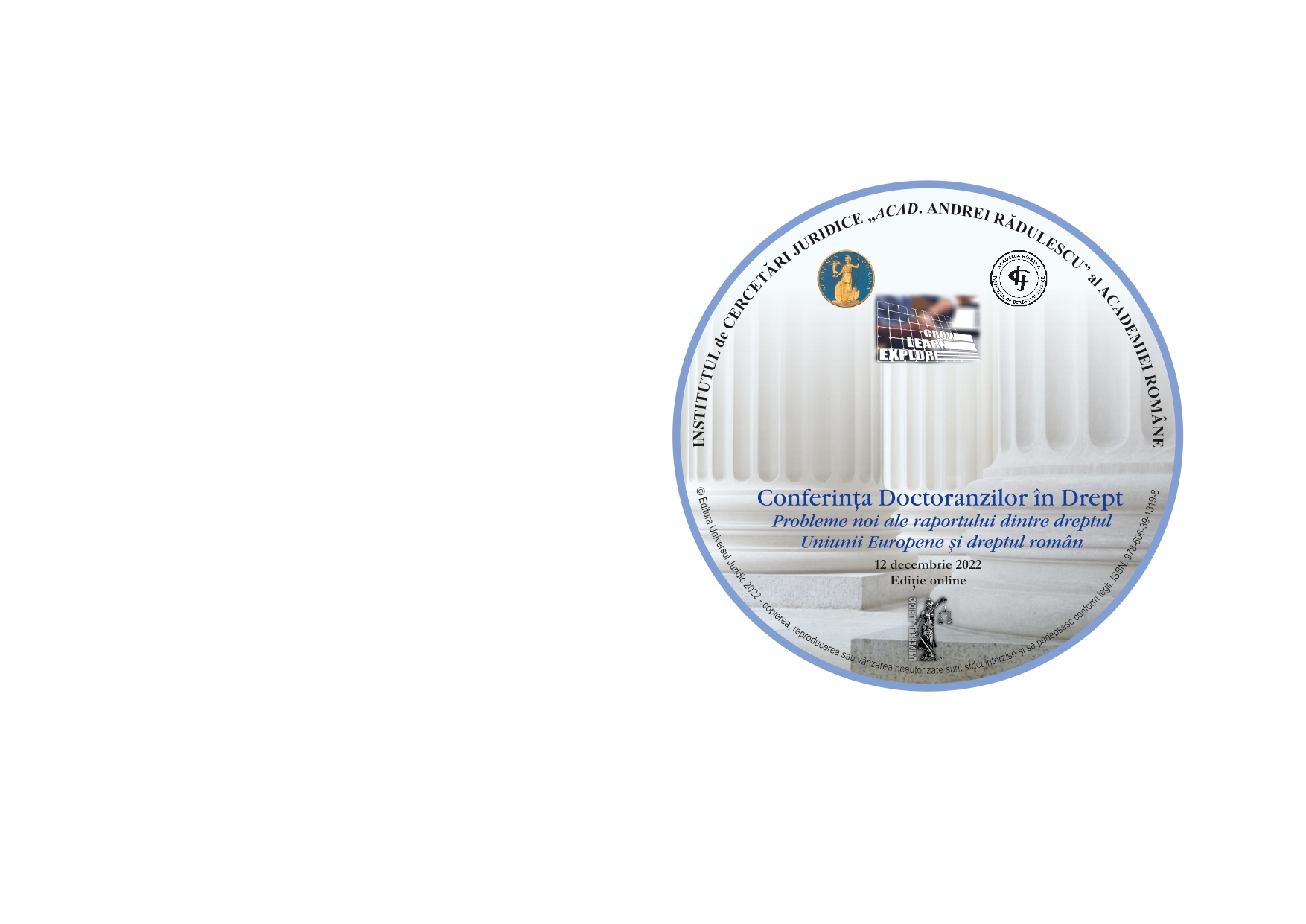
The Conference of Doctoral Students in Law, the first edition of this event, to the conference of young researchers, both within the Romanian Academy but also from other university centers in the country and abroad, an organized academic and institutional framework, adequate to encourage the activity of scientific research, stimulating debates and development of interdisciplinary research of national and international impact, the exchange of ideas in the area of topics of interest. The purpose of the conference is to support young researchers/PhD students in order to present the results of the research carried out in the elaboration of doctoral theses and their valorization through debate and publication in the present volume.
More...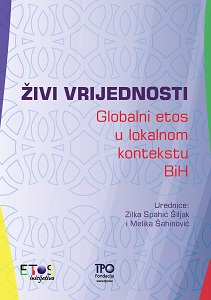
The collection of essays Živi vrijednosti: globalni etos u lokalnom kontekstu BiH (Living Values: Global Ethic in Local Context of BiH), published by TPO Foundation and edited by Zilka Spahić Šiljak and Melika Šahinović, is the result of cooperation between TPO Foundation and elementary and secondary school teachers, as well as university professors, that aims to promote universal human values in Bosnia and Herzegovina (BiH). The project was conducted in cooperation with ministries of education of five different cantons of Federation of BiH, but also with individual schools in other areas across BiH. Global ethic has succeeded in creating a network of over 100 elementary and secondary schools as well as over 700 teachers, who are all working hard on integrating global ethics contents in their teachings. The overall aim of the project is to transform the consciousness of the individual within the educational system, because it is not possible to build ethos of common values and yield systemic societal changes without such a transformation. The collection opens with four essays that are based on the four fundamental Global ethic values: Ethics, Tolerance, Openness and Solidarity (ETOS). These essays elaborate on the concepts of ethical behavior and morality within the context of a globalized world, as well as the necessity of effecting change starting with ourselves, and explore the concept of tolerance in terms of acceptance and friendship, while simultaneously underlining the importance of active respect for differences among individuals. They emphasize the importance of discussing the concept of openness in an ethnically divided society and building a more open society, capable of integrating all the abundance of differences within it. Solidarity is elaborated on as both a need and an art of living in a world where corporate structures tear down the few existing foundations of solidarity with those who are less privileged. The remaining twelve essays carry universal messages of kindness, courage, love, support, understanding and acceptance. Their intention is to inspire children, teachers, parents, as well as other members of society to become aware of the importance of careful listening, confronting one’s own prejudices and flaws, and supporting one another in doing good. The authors particularly emphasize the importance of doing and acting in accordance with ethical and moral maxims, whether religious or humanistic. Author Neven Misaljević puts a creative spin on the project, using his exceptional artistic imagination to contribute illustrations that depict each of the values explored in the essays. Teacher Rasema Herceg closes the collection with a poem that is inspired by the Global Ethic initiative and reminds us of the importance of the bond between one’s inner being and the world that surrounds us.
More...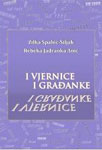
The book "Both Believers and Citizens" analyses the notion of women dignity, women position in society and marriage, public life, and their peace building role, within three religious traditions; Roman-Catholic, Orthodox and Islam, with the aim of construction and reconstruction of sex stereotypes. Philosophical-theological and cultural assumptions are given center of attention for their crucial role in each of the religious tradition on defining gender identities and gender roles, and original religious texts are therefore consulted. In that way contribution of religious traditions and individual engagament to implementation of The Article Five of Convention on the Elimination of All Forms of Discrimination against Women and UN Resolution 1325 on women and peace and security, i.e. to modification of cultural models, social and cultural patterns of conduct of men and women, and practices, prejudices and customs which are based on the idea of the inferiority or the superiority of either of the sexes, are also analyzed. Dignity and the human rights based on it, demand not only philosophical-tehological contemplations, but legal framework and respective institutions to protect and implement them, threfore this book addresses several religious communites' activities, without entering arena of legal discussion on harmonisation or differences between CEDAW articles, UN Resolution 1325 on women and peace and security, and legislations and teachings of churches and religious communities. The book is divided into four chapters. Chapter one elaborates and criticially examines the existing national and international legal instruments for the protection of human rights of women. After the historical overview of development of notion of human rights in general and human rights of women in particular, the gap between normative and factual is identified, followed by examples of discrimination and subordination of women both in public and private life. This gap is both enabled and supported by gender sterotypes that cultural and religious tradition try to justify. In the next three chapters, origin and religious (non) justification of gender stereotypes, from the three religious communities: catholic, orthodox and Islamic, point of views are deconstructed. The same structure and methodological approach is used in each of the three chapters. Topics covered are: dignity of woman, gender relations theories, gender relations in marriage and family, gender relations in public life, and impact of gender theories on peace building and engagement of women in peace building activities are also analyzed in the light of sacred texts and various theological traditions. Such approach opens the door to understanding in what way and under which circumstances gender identities were constructed within each of the religious communities, and what are the options available for the identity "deconstruction". Interrelations between religious traditions and intertwining of philosophical, theological, and cultural impacts on gender stereotypes formation are elaborated. What makes this reading unique when compared with similar studies analyzing relation between religious communities and human rights of women is more than one thing. First of all, it doesn't solely analyze teachings or legal regulations of particular religious communities but institutions and various initiatives lounged by religious communities in order to promote human rights of women. Secondly, from the religious point of view numerous issues of relevance for human rights of women are also considered: recognition of dignity and its implementation in both public and private sphere. Thirdly, attitudes of not one, but all three dominant religious communities in this geographic region - Bosnia and Herzegovina, are examined. Although relations of Catholicism, Orthodoxy and Islam towards human rights of women are treated separately, respecting the specificity of each religious tradition, including language, corresponding structure of work and methodology enable detection of common attitudes and influences. The fundamental aim of this work was to illustrate possibilities for establishing dialogue between civil and religious sector, and for reconciliation of religious and secular concept of human rights in regard to acknowledgment and implementation of human rights of women, as a prerequisite for establishment of more just gender relations in all aspects of life.
More...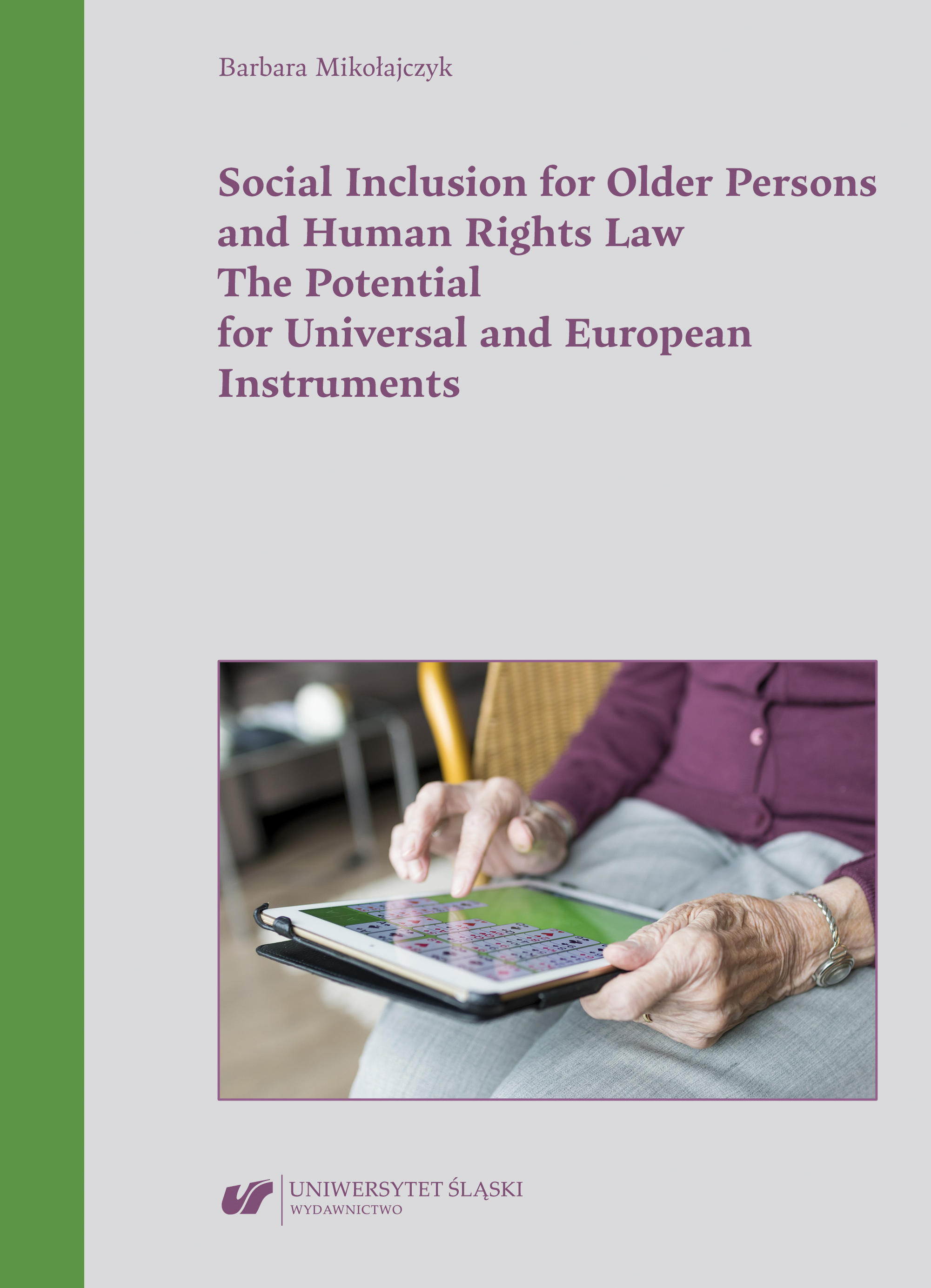
Global ageing is a challenge to human rights law as older people are far more vulnerable to a range of social, economic and political barriers that effectively exclude them from mainstream society. Thus, this book proposes a model of how to improve national ageing policies internationally by changing the current paradigm in the perception of older persons from passive receivers of care and assistance to active contributors to society. The author points to the need to improve the visibility of older persons internationally, promotes the idea of a treaty on their rights, and identifies areas where states and non-state actors can positively influence their social inclusion at the national level.
More...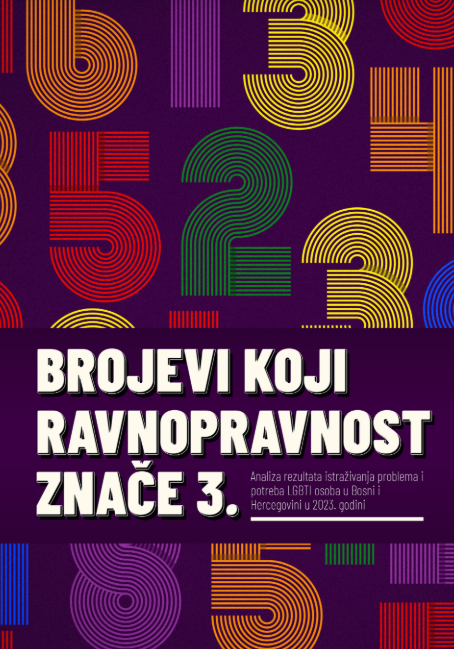
Istraživanje pred vama prepoznalo je kako napredak u poštovanju LGBTI prava u Bosni i Hercegovini, tako i duboko ukorijenjene probleme s kojima se LGBTI osobe suočavaju u našem društvu, uključujući nedostatak pristupa zdravstvenoj zaštiti, manjak socijalne podrške, ekonomskih mogućnosti te manjkavosti u zakonodavstvu koje im ne pruža odgovarajuću zaštitu. Iako nalazi istraživanja upućuju na potrebu za širom edukacijom društva, ali i same zajednice o LGBTI pitanjima kako bi se smanjila stigma i povećala prihvaćenost, ipak ukazuju i na neke pozitivne pomake.
More...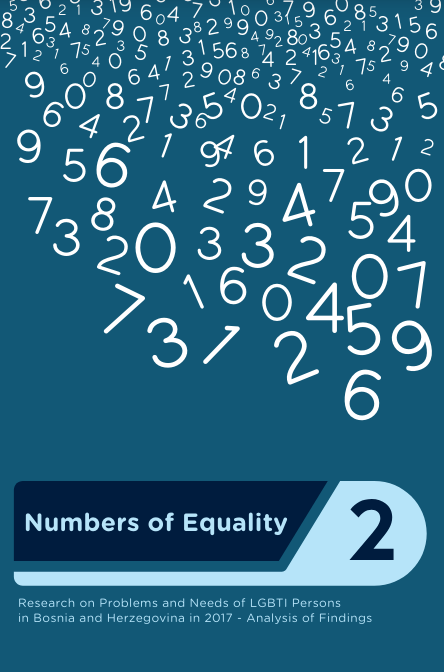
Bosnia and Herzegovina (BiH) has done a very poor job in protecting and ensuring the rights and freedoms of LGBTI (lesbians, gay, bisexual, transgender and intersex) persons. That much is confirmed in the annual report of the International Lesbian, Gay, Bisexual, Trans and Intersex Association (ILGA-Europe) published in 2017 (Rainbow Europe Index 2017), that assigns the institutional and legal framework of BiH with a 31% ranking on scale of 0% (gross violations of human rights) to 100% (full respect of human rights). As for countries from the region, Croatia (62%), Montenegro (39%) and Albania (33%) all have a higher ranking, while Serbia (30%), Kosovo (30%) and Macedonia (16%) scored lower than BiH. While the legal framework for protecting the rights of LGBTI persons and ensuring their equality has been somewhat improved, hate speech, discrimination and violence against the LGBTI community are still a widespread occurrence in the society of BiH. Measures to ensure the equality of LGBTI persons were adopted through two important policies in 2015 and 2016: in late 2015 and the first quarter of 2016 governments of both entities adopted annual operational plans for the implementation of the Gender Action Plan in 2016, while the Council of Ministers of BiH adopted a one-year Anti-Discrimination Action Plan in April 2016. These policies include a number of measures designed to enhance the rights of LGBTI persons. The Law on Amendments to the Criminal Code of FBiH was also adopted in April 2016 “regulating, among other things, hate crimes committed on the grounds of sexual orientation and gender identity.” Finally, Amendments to the Anti-Discrimination Law of BiH were adopted in mid-2016. The amendments “finally introduce correct terminology by adding sexual orientation and gender identity as prohibited grounds of discrimination”, and also “include ‘sex characteristics’ as prohibited grounds of discrimination”, thereby making BiH the first country in Southeast Europe with an anti-discrimination legislative framework that protects intersex persons.4 On the other hand, fear, violence and discrimination are still part of everyday life for LGBTI persons and little has improved in this regard: in 2015, Sarajevo Open Centre documented “as many as 103 cases of hate speech and incitement to violence, 20 incidents and criminal offenses motivated by prejudice related to sexual orientation and/or gender identity.” The current, predominantly heteronormative and patriarchal social context, inundated with explicit homophobia, intolerance and violence against LGBTI persons, coupled with inadequate institutional mechanisms for protecting LGBTI rights and freedoms, has made the life of the LGBTI community much harder and considerably more limited than the rest of the population. LGTBI persons are often prevented from leading a normal life or meeting basic personal, social or cultural needs (e.g. being open about their relationships, freely expressing their gender, etc.). The results of this study indicate that fear of violence, discrimination and/or exclusion often leads to extreme forms of self-isolation, avoidance of certain cultural and social activities, reluctance to express one’s views, etc. The lives and needs of LGBTI persons are often incomparable to the quotidian life of those whose sexual orientation, gender and/or sexual identity falls neatly within the dominant and cultural matrix of the BiH society. Therefore, we decided to adopt a different approach. Unlike most studies and reports that focus primarily on the institutional and legal framework and/or social position of LGBTI persons, the study presented here aims to provide comprehensive, detailed insight into the attitudes of LGBTI persons and their outlook on everyday life, the challenges and problems before them and the real needs of the community. Although somewhat different in terms of methodology and scope of research, this study can be viewed as a continuation of Sarajevo Open Centre’s research work from 2013 when the organisation published the report “Brojevi koji ravnopravnost znače: Analiza rezultata istraživanja potreba LGBT osoba u Bosni i Hercegovini” (eng. Numbers of Life: Analysis of Results of Research on the Needs of LGBT Community in Bosnia and Herzegovina). The following section presents basic information about the methodological framework, the approach, as well as the demographic composition of the sample. The next part is dedicated to the analysis of key research results divided into ten thematic units. After that, we discuss the work of Sarajevo Open Centre, i.e. the effects of its activism. Finally, we present general recommendations drawn from this research on how to improve various aspects of the life of LGBTI persons.
More...
The NATO aggression against the Federal Republic of Yugoslavia in 1999 is one of the most tragic episodes in the modern history of the Serbian people. In military terms, this conflict was almost absurd: the largest military coalition in history attacked a small and isolated country with a genuine threat to destroy it utterly. From the political and cultural point of view, this conflict brought to Serbia besides terrible destruction and numerous victims, a profound disappointment because the war was initiated by its former allies from the two great world wars. During the 20th century, in the First Balkan War and the First and Second World War, Serbia mainly fought against far superior enemies (the Ottoman Empire, the Austro-Hungarian Empire, Imperial Germany and later Nazi Germany) but always with a strong motive of freedom in the foreground. Serbia emerged as a winner and part of the winning alliances from all these conflicts. In so far, the military attack of the nineteen NATO member states on Serbia, i.e., the former FR Yugoslavia (the remaining federation of Serbia and Montenegro after the dissolution of the “Great Yugoslavia”), conducted by an alliance of some major allies from the previous wars (France, United Kingdom, USA), represented an enormous civilizational shock to the Serbian people. It was hard to comprehend and accept the ideological, political and “humanitarian” reasons declared by the Western allies as justification for their warfare. From this perspective, it can be stated that the fallen members of the Yugoslav Army and the Ministry of the Interior of Serbia demonstrated heroism and courage equal to those of their ancestors who fought in the previous wars for freedom and honor of the homeland. On the occasion of two decades of this, for many reasons, a unique war in military history, the Faculty of Security Studies of the University of Belgrade and the Institute of International Politics and Economics from Belgrade decided to publish the international thematic collection of scientific papers.
More...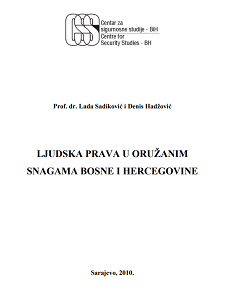
Ratifikacijom Evropske konvencije za zaštitu ljudskih prava 12. Jula 2002. godine država Bosna i Hercegovina se obavezala da će svim licima pod njenom jurisdikcijom osigurati sva ljudska prava i osnovne slobode sadržane u Konvenciji i protokolima uz nju. Ova obaveza države Bosne i Hercegovine podrazumijeva naravno i zaštitu ljudskih prava za sve pojedince pod njenom jurisdikcijom, bez obzira na to kojim društvenim sferama ili oblicima organiziranja pripadaju. To znači da pored svih onih ljudskih prava koja se jednako odnose na sve pojedince pripadnike bosanskohercegovačkog društva postoje i oblasti djelovanja koje po svojoj prirodi ne omogućavaju takvu jedinstvenu primjenu i zaštitu ljudskih prava. Jedna od takvih kategorija svakako su ljudska prava u oružanim snagama. Naime, pojedinci pripadnici oružanih snaga imaju sa jedne strane sva prava i osnovne slobode iz Evropske konvencije ali, sa druge strane, usljed specifične prirode i karaktera profesije koju obavljaju nužno imaju i brojna ograničenja tih ljudskih prava. Normalno je predpostaviti da se u Oružanim snagama BiH, s obzirom na visok stepen subordinacije i centralizacije te funkcije, neće moći osigurati sva ona ljudska prava koja su karakteristična za pripadnike u različitim oblicima civilnih djelatnosti. Delikatnost našeg zadatka upravo je u tome da se na skladan način pomire i sintetiziraju ljudska prava koja pripadaju svim pojedincima i obaveza njihove restrikcije koja proizlazi iz karaktera vojne djelatnosti. Sukladno praksi savremenih evropskih država postoji potreba da se za pojedince i u toj sferi društvenog djelovanja osiguraju ona ljudska prava koja je moguće u tim uvjetima ostvariti a da se istovremeno, ni na koji način ne naprave zapreke uspješnom djelovanju oružanih snaga u ostvarivanju njihove odbrambene funkcije. Polazeći od navedenog, cilj istraživanja je da se u Bosni i Hercegovini takođe istraži odnos između slobode pojedinca – pripadnika Oružanih snaga Bosne i Hercegovine i potrebe da se uspješno ostvaruje osnovna zadaća Oružanih snaga Bosne i Hercegovine. Ovaj zadatak posebno je suptilan zbog toga, što se prvi put u Bosni i Hercegovini uveo princip profesionalnih oružanih snaga umjesto ranije klasične vojne obaveze. Ovom prilikom svakako, imat će mo u vidu iskustva razvijenih demokratskih zemalja Evrope, koje su i u ovom smislu postigle već određene rezultate i izvršile određena istraživanja u uvjetima postojanja oružanih snaga i ljudskih prava za pojedince koji vrše tu funkciju. To znači, da će biti tretirane uglavnom one oblasti ljudskih prava koje su već istražene u evropskim državama u namjeri da se ukaže na specifičnosti i posebnosti naše situacije. Najmarkantnija specifičnost naše situacije u ovoj oblasti jeste da se oružane snage ne spominju u Ustavu Bosne i Hercegovine (Aneks 4 Općeg okvirnog sporazuma za mir u BiH) nego u Aneksu 2 tog Sporazuma. Svakako da će predstojeće ustavne promjene dovesti i do ustavnog normiranja oružanih snaga. Međutim, ovo istraživanje bit će usmjereno na sadašnje stanje, bez obzira na okolnost što se u Daytonskom mirovnom sporazumu razdvaja implementacija vojnog dijela mirovnog sporazuma od tzv. civilne implementacije toga Sporazuma i postojanja Visokog predstavnika međunarodne zajednice koji je zadužen za tu oblast prema Aneksu 10 Daytonskog mirovnog sporazuma.
More...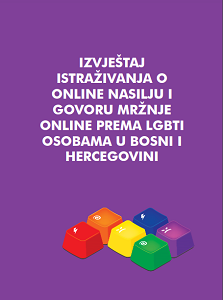
U današnjem digitalnom dobu, sloboda izražavanja na internetu predstavlja ključni element demokratskog društva, omogućavajući široku participaciju i razmjenu ideja. Međutim, ova sloboda često se zloupotrebljava za širenje govora mržnje i online nasilja, posebno prema ranjivim društvenim grupama kao što su LGBTIQ+ osobe. Bosna i Hercegovina suočava se sa izazovima nedovoljne zaštite LGBTIQ+ zajednice od online nasilja i govora mržnje, što se dodatno komplicira fragmentiranim, neprilagođenim i nejasnim zakonodavnim okvirom, uključujući neadekvatnu provedbu navedenog, kao i nedostatkom efikasnih institucionalnih odgovora.
More...
In today’s digital age, freedom of expression on the Internet is a key element of a democratic society, allowing for broad participation and exchange of ideas. However, this freedom is often abused to spread hate speech and online violence, especially towards vulnerable social groups such as LGBTIQ+ persons. Bosnia and Herzegovina faces the challenges of insufficient protection of the LGBTIQ+ community from online violence and hate speech, which is further complicated by a fragmented, maladaptive and unclear legislative framework, including inadequate implementation of the above, as well as a lack of effective institutional responses.
More...
Govor mržnje, kao manifestacija netolerancije i preteča nasilja, predstavlja značajan izazov kako društvenoj koheziji tako i načelima demokratskog upravljanja i demokratskog, tolerantnog i savremenog društva uopšte. Regulacija govora mržnje postavlja složena pravna (i etička) pitanja, balansirajući između zaštite javnog reda i dostojanstva pojedinca i temeljnog prava na slobodu izražavanja. U Republici Srpskoj zakonski okvir koji (u određenoj mjeri) regulira „govor mržnje“ uveden je sa novim Krivičnim zakonikom Republike Srpske 2017. godine (u daljem tekstu: KZ RS).1 Navedeni okvir prvenstveno je sadržan u članu 359. KZ RS koji predviđa krivično djelo Javno izazivanje i podsticanje nasilja i mržnje. Ova odredba ima za cilj suzbijanje izražavanja koja podstiču nasilje i mržnju na temelju nacionalne, rasne, vjerske ili etničke pripadnosti, boje kože, spola, seksualnog opredjeljenja, invaliditeta, rodnog identiteta, porijekla ili kakvih drugih (zaštićenih) osobina. Predmet ove analize jeste upravo teorijski i praktični pogled na član 359. KZ RS, odnosno ispitivanje njegovog opsega, primjene i učinkovitosti (djelotvornosti) unutar pravnog okvira Republike Srpske.
More...
The legislative act is known as the EU Law Enforcement Directive (LED) (known also as the EU Police Directive), a twin sister to the far more widely known General Data Protection Regulation – GDPR). Both GDPR and LED are part of a new EU legislative package that has significantly improved personal data protection standards. They were adopted in the spring of 2016 and have been in force since May 2018. While the General Regulation has garnered most of the attention from the expert community, governmental and non-governmental sector, the business world and the broader public concerned with individual privacy, the Law Enforcement Directive is rather specific – for both the circumstances in which it applies and from the approaches it adopts.
More...